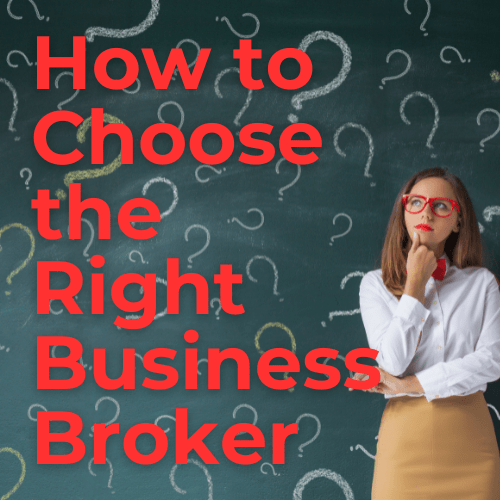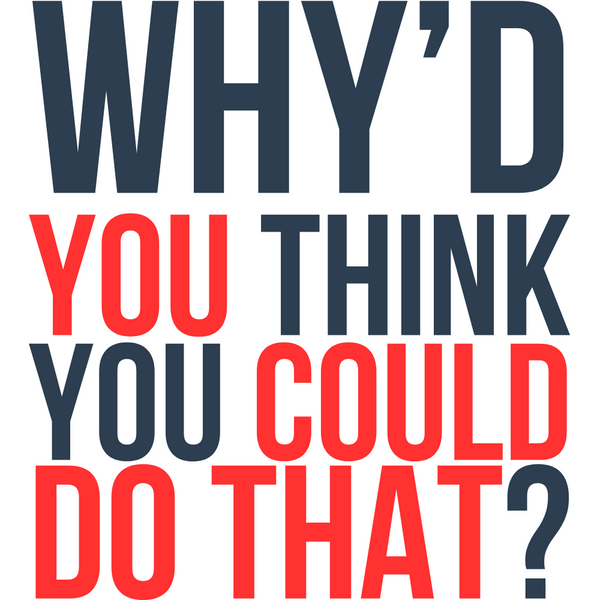
Business Brokers in Australia: How to Find the Right One for Your Business for Sale Deal
Share
Selling your business is one of the most important financial decisions you’ll ever make. And in most cases, the right business broker can make or break the deal. A great broker will position your business, attract the right buyers, handle negotiations, and get the deal done at the best possible price. The wrong broker? They’ll waste your time, attract tyre-kickers, or — worse — undersell your business.
In this guide, I’ll walk you through what makes a good broker, red flags to watch for, and how to choose someone who’s aligned with your goals. Because in the Australian market, not all brokers are created equal.
Why Use a Business Broker?
You might be asking — do I even need a broker? Here’s the short answer: unless you’ve sold multiple businesses before, understand valuation, know how to qualify buyers, and can run a sales process while still operating your business… yes, you do.
Here’s what the right broker brings to the table:
- Professional valuation and pricing guidance
- Access to a database of pre-qualified buyers
- Confidential marketing that protects your reputation
- Negotiation experience that keeps emotions out of the deal
- Assistance with due diligence and deal structure
But the keyword here is right broker.
Red Flags to Avoid
Not every broker is working in your best interest. In fact, some are just chasing listings, not sales. Watch out for these signs:
- No screening process for buyers – if anyone can get your business info, confidentiality is at risk.
- Overpromising on price – if their valuation sounds too good to be true, it probably is.
- No clear marketing plan – good brokers don’t just list your business and hope.
- Poor communication – if they take a week to return a call now, imagine how they'll act mid-deal.
- No recent deal history – ask what they’ve sold in the last 12 months and for how much.
Tip: Ask for client references and actually call them. The best brokers will have raving fans.
What Makes a Great Business Broker?
In the Australian market, a great broker is someone who does more than send out emails to a buyer list. They guide you, challenge you, and help position your business to maximise value.
- Understands your industry and business model
- Knows how to market strategically and confidentially
- Can explain different deal structures (earnouts, vendor finance, etc.)
- Is licensed and a member of the Australian Institute of Business Brokers (AIBB)
- Has a process that includes qualifying buyers, setting expectations, and managing due diligence
How to Interview a Business Broker
This is where you separate the pros from the pretenders. Don’t just go with the broker who gives you the highest valuation — that’s bait. Instead, ask these questions:
- How many businesses like mine have you sold?
- What’s your average time on market?
- What kind of buyers do you have on your books?
- How do you maintain confidentiality during marketing?
- How do you handle negotiations and buyer objections?
- What’s your commission structure and any hidden fees?
Pay attention not just to the answers, but how they answer. Are they clear? Do they have a process? Or are they winging it?
Should You Use a Local Broker or a Specialist?
This depends on your business type. If you run a local café, tradie business or small retail store, a local broker with contacts in your region may be best. But if you’re selling a service-based, SaaS, or scalable B2B business — a specialist with national reach and sector knowledge will likely get you a better result.
Also consider brokers who use buyer-matching platforms and databases (like ExitAdviser or AIBB), or who collaborate with accountants, advisors, and M&A networks.
Commission: What’s Normal in Australia?
Most Australian business brokers charge 5–8% of the final sale price. Some may include a listing fee or charge for marketing upfront. Others work solely on success fees. Be wary of low-commission brokers — you often get what you pay for.
Negotiation tip: A higher commission tied to over-performance (e.g. exceeding a target price) can align incentives better than a flat fee.
When to Start Working with a Broker
Ideally, 6–12 months before you want to sell. A good broker can help you prepare the business, improve the numbers, and identify red flags that might scare off buyers. You’ll get a better result and a smoother process.
If you wait until you’re exhausted and desperate to exit, your broker has less time — and leverage — to get you a good outcome.
Alternatives to Brokers: Should You DIY?
It’s tempting to try and sell the business yourself — especially if you want to save on commission. But unless you have:
- Deal experience
- A buyer pipeline
- Valuation knowledge
- Strong negotiation skills
… it’s rarely worth the risk. Most DIY sellers either don’t sell at all or leave serious money on the table. If you do decide to go solo, at least invest in legal and financial advisors to protect yourself through the process.
How I Work with Brokers
In my coaching and advisory work, I often collaborate with Australia’s top-performing brokers. I know who gets deals done and who just lists and waits. If you're preparing for sale and want help selecting the right broker for your situation, I offer a 30-minute strategy session to map your options. No pressure. Just clarity.
Book your strategy session here.
Final Thoughts: Your Broker Is a Partner, Not a Passenger
Choosing the right business broker in Australia isn’t about charm or promises — it’s about track record, process, and alignment. This is a high-stakes transaction. Treat it like one. Ask tough questions. Do your homework. And work with someone who knows how to position, protect, and sell your business the right way.
Ready to sell or want to understand your readiness? Download my free Business Sale Readiness Checklist or connect for a no-fluff call to map out your next step.
Related Reads
- Business Broker Network Australia: The 2025 Guide to Brokers by Region
- How to Choose the Right Business Coach in Australia (Even If You’ve Been Burned Before)
- How to Buy a Business for Sale in Australia: The Ultimate Investor's Guide
- Top 5 Mistakes Investors Make When Buying a Business for Sale in Australia
- Business for Sale ACT: Why Canberra Is Australia’s Most Underrated Market
